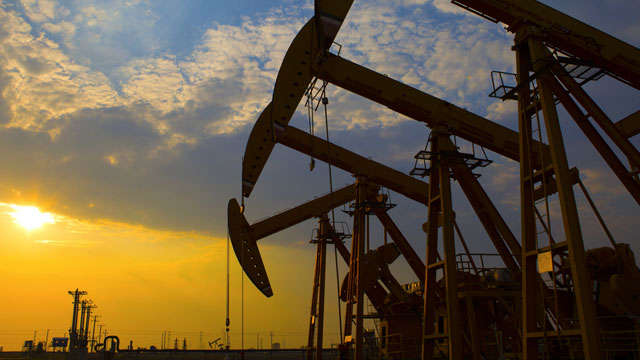How Bad Will Falling Oil Prices Hurt North Dakota?

North Dakota has seen a boom in industry, commerce, and population thanks to Bakken shale oil development, but that boom has been made possible by high oil prices. As this map from Vox shows, North Dakota is one of the states that have benefitted the most from rising oil prices:
That’s a good place to be, except for when oil prices fall. Which they are. In fact, there’s something of a price war going on between middle eastern oil countries and American oil producers.
The reality of dropping oil prices is sort of a mixed bag for Americans. On one hand, lower oil prices mean lower energy prices in general. That’s good for consumers nationally. On the other hand, the nation’s domestic oil boom is one of the few bright spots in our national economy right now, as I noted yesterday. Dropping oil prices will put a damper on the influx of jobs and commerce oil development has provided.
But for North Dakota specifically, this could be really bad.
I was speaking with some lawmakers yesterday, and they’re concerned. The state budget increased a whopping 62 percent last biennium, and another round of aggressive budget increases (not to mention tax cutting) seems to be on the agenda for the coming biennium. But how certain are future tax revenues in the midst of an oil price war?
Consider this: In calendar year 2013, more than half of North Dakota’s tax revenues came from oil and gas production.
Nobody seems to know the answer.
What’s troubling for North Dakota is that not only does the state have one of the highest oil production taxes in the nation at 11.5 percent, but thanks to the state’s extreme weather conditions and lagging infrastructure (we need pipelines!), the state is also one of the most expensive oil plays in the nation.
Meaning that if oil price drop, one of the first places in the nation it’s going to become unprofitable to pump oil is North Dakota.
That makes the Keystone/Sandpiper pipeline delays loom large, as well as the Legislature’s decision to not only refuse reform for the state’s taxes on oil production but to actually raise them last year.
The oil markets being what they are, who knows what will happen, but suffice it to say that while dropping oil prices might be good for the rest of the country, they’re potentially devastating for North Dakota.
My guess is that these fears probably won’t put much of a damper on spending (naturally), but you can bet that those looking to abolish the state income tax (of which there are a growing number) will have to overcome this obstacle.





